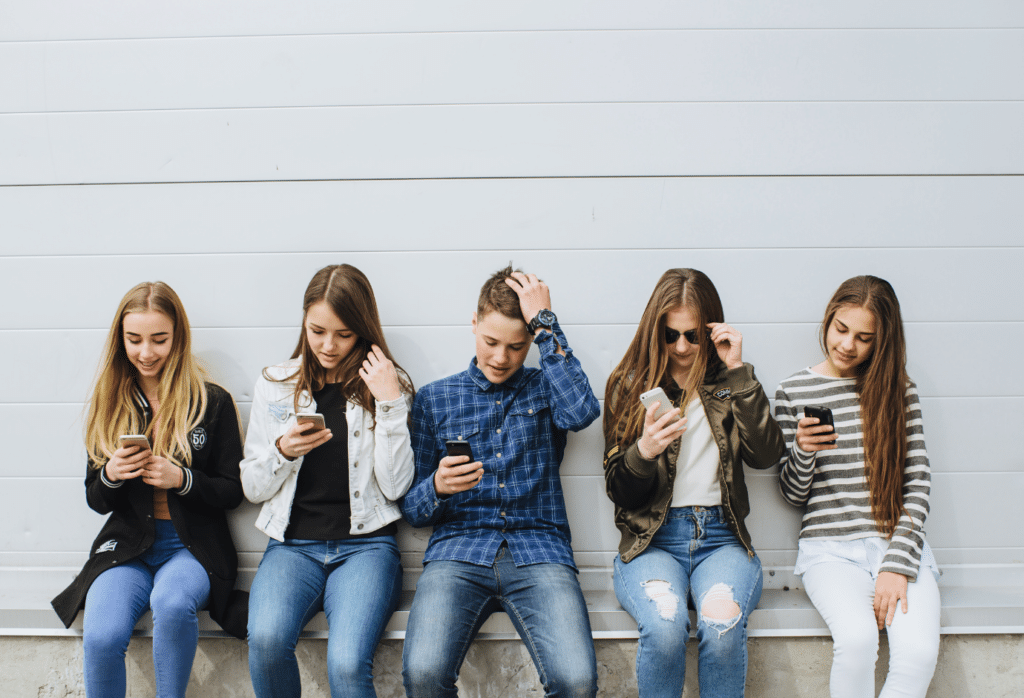The impact of social media on teenagers’ mental health and wellbeing is a top concern among parents and carers, a new report from ReachOut has revealed.
Almost 60 per cent of parents and carers surveyed by the national mental health service said they are worried about social media’s affect on the mental health and wellbeing of the young people under their care.
Over 600 parents and carers of teenagers between 12–18 living in Australia were surveyed in April 2023.
Over half of those who expressed concern over their teens’ use of social media said they wanted access to quality, trusted information that could help them to support young people.
Among those who placed social media use as a top concern, more than half (55 per cent) said it had a critical impact on the wellbeing of the teens they look after.
According to the report, released on Monday morning, parents and carers are also worried about online safety.
“[Parents and carers] were concerned about exposure to strangers, predators or others with intent to harm, as well as about cyberbullying or harassment,” the report read.
“As one parent put it, ‘Unfortunately, people make fake accounts, hide behind screens to say to people what they can’t say to their face’. Parents and carers were also concerned about data privacy and scams.”
The latest findings from the report contrasted with those from a study published by ReachOut in 2023, where young people were interviewed about their views on social media use.
That report revealed that only 34 per cent of young people said social media was an issue of concern for them.
“Social media ranked 24th in the list of issues that young people were most concerned about, well below the cost of living, loneliness and study stress, while parents and carers in the current study chose social media as a top issue of concern more frequently than any other issue,” the Parenting in the Digital Age report said.
Director of Service at ReachOut, Jackie Hallan, believes that the latest findings indicate that social media and internet use continues to be an area of concern.
“Those concerns are really valid and this is backed up by the data on the number of parents and carers reporting significant mental health impacts as a result of social media and internet use on their teens,” she said in a statement.
“By overlaying this new research with data from young people, we hope to provide useful insights for parents and carers on how to best support their teens. For example, knowing that in some cases your teen might be turning to social media and technology to help them cope when something is going on for them rather than tech being the issue can be a turning point.”
“We also want to remind parents and carers that they are not alone when it comes to navigating the challenges that can come with teens and tech and encourage them to visit ReachOut Parents for free information, support and coaching.”
“We will use this research to continue to work in partnership with parents, carers, young people, governments, brands and tech companies to ensure that families across Australia have access to the support they need,” she said.
Last year, a study from the University of Sydney found that young people use a variety of social apps, messengers, and online games, including TikTok, Instagram, YouTube, SnapChat, Minecraft, and Fortnite. Among the 1200 young people who were surveyed, 72 per cent said they exercised self-regulation by avoiding scams and suspicious links, while 68 per cent said they blocked abusive users, and 67 per cent said they declined follow requests from strangers.
Dr Jonathon Hutchinson, Senior Lecturer and Chair of Discipline in Media and Communications, said one of the most interesting things he discovered during the research is that young people “are incredibly capable when it comes to digital technologies.”
“[They] and have developed a range of tactics that help them stay safe and navigate their digital lives,” he said.
“What young people need help with is managing their data and removing content quickly – that’s where parents and carers can really help.”
Dr Justine Humphry, Senior Lecturer in Digital Cultures, added: “Parents and young people live in quite separate digital words.”
“Talking at the point of signing up to a new app or when creating a profile can help to find common ground and learn from one another. ”



